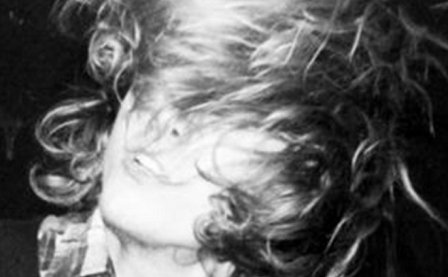Is Ty Segall the savior of garage?
Last fall, Ty Segall played a show with Thee Oh Sees in Richmond, VA, and as he was packing his equipment, someone still out of breath from moshing rushed toward the stage and leaned against the edge, shouting as best as he could to tell Segall that he had saved garage.
If I ever have to explain garage or explain why I like garage, I usually talk about how it’s visceral and chaotic and insane. Music driven by electric guitars and punctuated by shrieks. Music so noisy and blistering at shows that I can’t help but crash into everyone around me as they crash into everyone else, and we all leave sweating and bruised. Music that sometimes freaks me out.
When I read that Ty Segall had written Sleeper as a way to cope with his father’s death and that he played almost all of the instruments himself, I couldn’t help but think of Thee Oh Sees’ Castlemania. How Brigid Dawson explained the way John Dwyer recorded most of the album by himself and that he may have written those songs as a way to deal with the deaths of a few close friends.
It’s that sort of honesty that surprises me, even puzzles me a bit, just because it’s not at all what I expect when I listen to a garage band.
Sleeper drifts from headspace to headspace.
There’s the headspace of wandering. Not down city streets lit by neon and psychedelics or through a crowded room of punks who echo and jolt, but around your own place. Your own room. You’re lost, because you’ve kept so many notes and have forgotten how to read them, because you’ve kept so many records and have forgotten what they sound like no matter how many times you play them.
You’re missing, because someone else is missing.
There’s the headspace of staying in. Not because you’re nervous about a 12-night bender, but because you’re listening to the rumble of wind and traffic through an open window and practicing stillness.
You’re learning how to meditate.
There’s the headspace of dreaming. Not what you remember about what you saw — a mountain dotted with tall sunflowers or a bridge across the ocean or a flooded house — but that feeling when you start to wake up. Awareness of contact and light.
You’re disappearing between spaces.
And there’s the headspace of returning.
Not settling.
Transcending.
I don’t think garage needs saving.
Yet, when Ty Segall shares visions within the freaked-out space of garage, he cracks it open.
More about: Ty Segall




